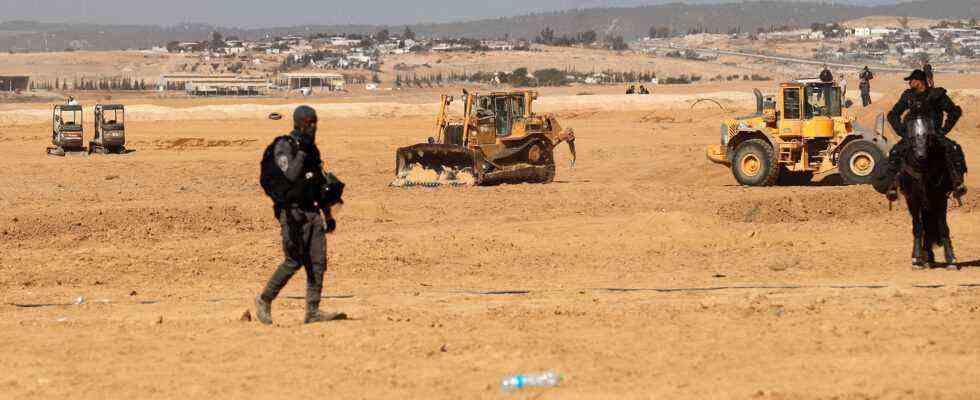Status: 01/12/2022 1:46 p.m.
A planting campaign in the Negev desert becomes an ordeal for the Israeli government. Trees should be planted on the land where Arab Bedouins live.
A car is on fire, as shown by footage from the Israeli television broadcaster KAN. The car is parked in the middle of a street in the Bedouin city of Shaqib al-Salam. It is located in the Negev desert, which is called Naqab in Arabic. Protests and clashes with Israeli police broke out during the night. A regional train had to initiate an emergency braking because stones were laid on the tracks.
Trees in the desert – for environmental protection
The protests were triggered by a project that at first glance does not seem controversial: The Jewish National Fund KKL is planting trees in the desert on behalf of a government agency. According to the KKL, it is about landscape conservation and environmental protection and a Jewish tradition before the holiday of Tu Bishwat.
Arab Bedouins who live in the area, however, have doubts about these motives. From their point of view, the aim is to confiscate Arab lands and prevent the construction of houses for the Bedouins. 160,000 Bedouins live in the Negev desert. Many of them in simple huts with no electricity or water supply. In villages some of which the State of Israel does not recognize.
Israeli security forces guard the area where the trees are to be planted.
Image: AP
The dispute reveals a fragile coalition
Improving the living conditions of the Bedouins: That is a promise made by the Israeli government headed by Prime Minister Naftali Bennett and Foreign Minister Yair Lapid. The project secured the government a slim majority in parliament because the Arab Ra’am party agreed to become part of the coalition.
The fact that there is now a dispute over trees shows how fragile the eight-party alliance is. The Ra’am party threatens to no longer vote with the coalition in the Knesset as long as the planting continues. The government would then no longer have a parliamentary majority.
Bedouins claim the land
The Ra’am MP Iman Hatib Yassin spoke to the broadcaster KAN. “We entered into this partnership in the hope that our partners understand that the Arab citizens of this state have fundamental rights. They deserve to live with these fundamental rights on their land with honor. That is what we are in politics for. We are here, to serve our citizens, the Arab citizens. ”
The Bedouins living there protest against the reforestation, clashes and arrests took place.
Image: AFP
MPs planted trees
The Bedouin in the area say the trees are planted on land that is theirs. The State of Israel denies that.
Opposition MPs from the Likud party drove to the Negev desert and demonstratively planted trees. Avi Dichter did the same thing: “It’s a fight between criminals and the state. The criminals want to control areas that do not belong to their village, and the state and KKL take care of things with the help of the tree, the tractor and politics Order.”
Parts of the government are also in favor of the planting – for example, building minister Ze’ev Elkin from the New Hope party. “The status of these countries is that they belong to the state. There are courts in the State of Israel, and anyone who claims it is their private land is welcome to sue in one of these courts.”
However, the Bedouins argue that they are structurally disadvantaged and that Israeli courts, as a rule, do not help them. Many of them voted for Ra’am, the Arab party that is part of the coalition. Foreign Minister Lapid sided with the Arabs. The Bedouin problems have been neglected for years.
Trees, fires, protests: Israeli government faces another acid test
Benjamin Hammer, ARD Tel Aviv, January 12th, 2022 12:54 p.m.

